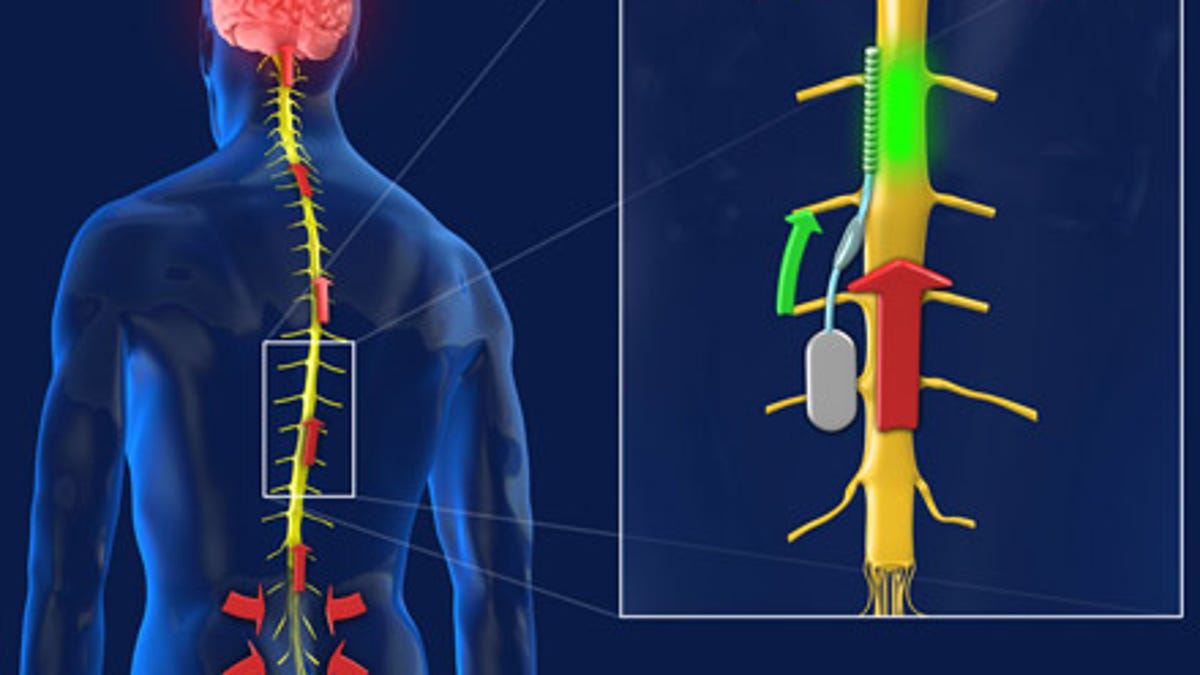Scientists beat pain with spinal chip
Australian researchers are readying to conduct human trials of a smart chip, which, when implanted in the spinal cord, measures and stops pain signals from traveling to the brain.

Australian researchers are getting ready to conduct human trials next year of a smart chip, which, when implanted in the spinal cord, can measure and stop pain signals from traveling to the brain.
The technology, targeting chronic pain, was developed in Sydney by National ICT Australia (NICTA) over the last two years by experts in biomedical, electrical, and mechanical engineering, as well as textile technology and software applications.
The smart chip is put into a biocompatible device, which is a little smaller than the head of a match. A couple of the devices are sewn into a 1.22mm-wide micro-lead made from polymer yarn and electronic wires. The wires are then inserted into the spine (or elsewhere) and connected to a device containing a battery and a computer processor. The battery can be charged wirelessly.
Read more at "Sydney scientists beat pain with spinal chip" at ZDNet Australia.